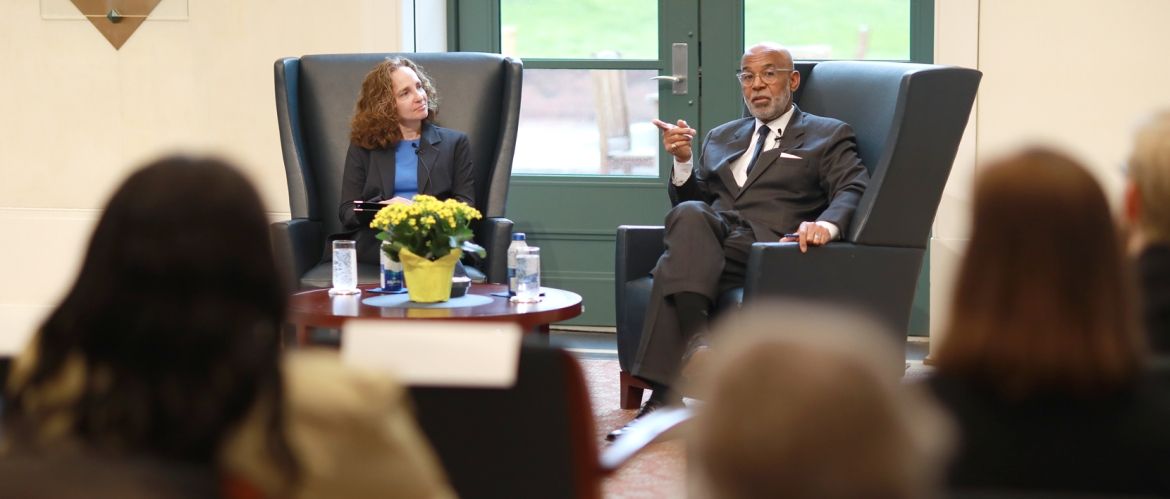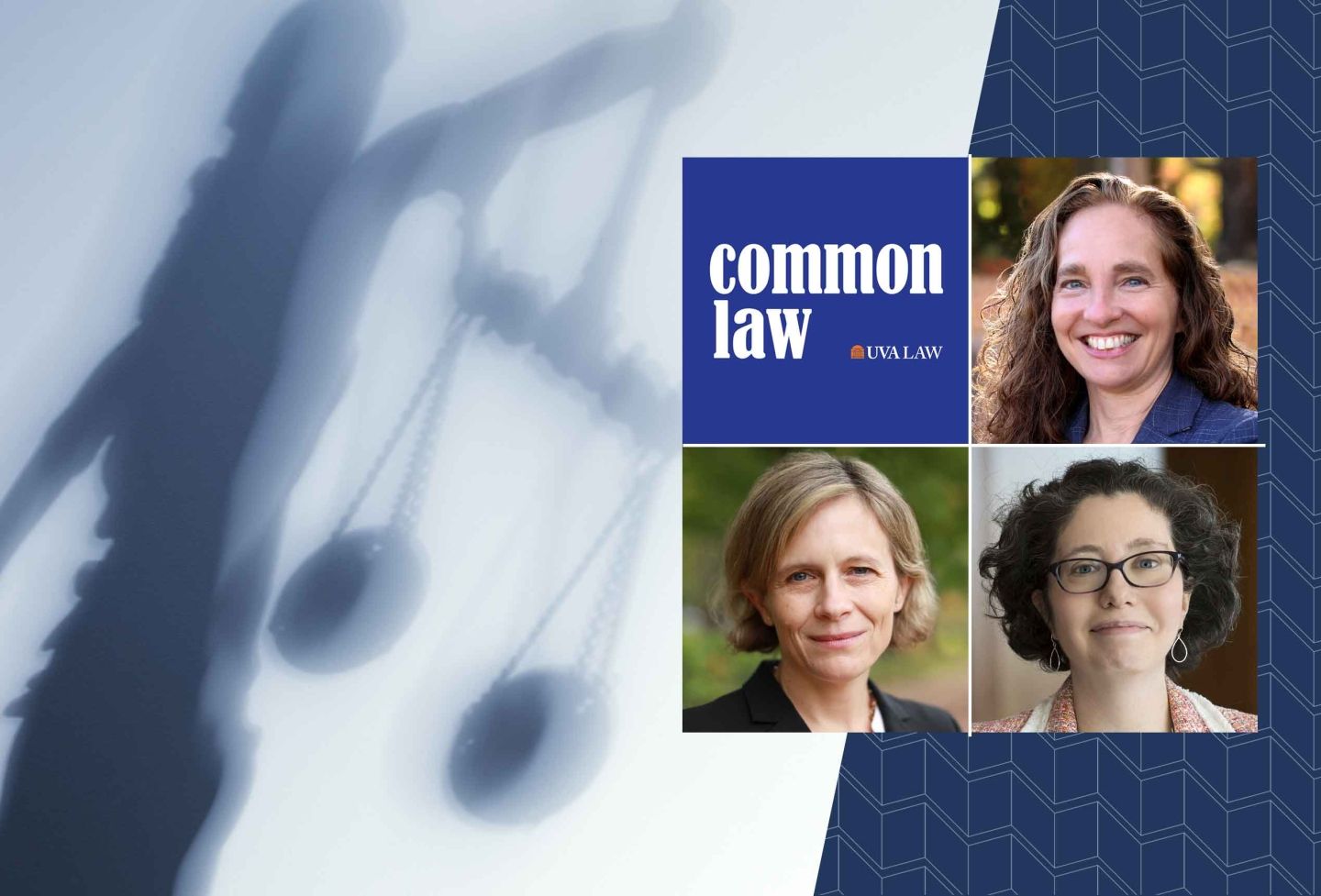Judge Roger L. Gregory, this year’s recipient of the Thomas Jefferson Foundation Medal in Law, reflected on the Constitution, his role on the bench and the need to build bridges in a democracy, during a talk Thursday at the University of Virginia School of Law.
Gregory, the first Black judge to serve on the U.S. Court of Appeals for the Fourth Circuit and the court’s chief judge from 2016-2023, spoke in Caplin Pavilion the day before he was scheduled to receive the award at the Rotunda.
Quoting Abraham Lincoln, Gregory acknowledged the powerful emotions stirred in him by accepting a trailblazers’ award in a week that holds historical significance for the American experiment in democracy. The second week of April, he said, marks Thomas Jefferson’s birthday, the first day and last days of the Civil War, and the day that Dr. Martin Luther King Jr. was arrested in Birmingham.
“It’s times like this that the ‘mystic chords of memories’ swell and they touch many chords and rivers of time and all those things,” Gregory said. “It is an incredible week in our history and certainly my personal honor to be here at Mr. Jefferson’s school.”
The Jefferson Medal is the highest external honor the University bestows.
Throughout his remarks, Gregory shared his view of the U.S. Constitution — that it was written to flex over time — while also calling for bridge-building. He rooted his own argument for living constitutionalism in the history and evolution of the document, emphasizing its inherent adaptability.
“Text without context is pretext,” Gregory said. “Justice [Joseph] Story […] served with John Marshall [and] wrote commentaries on the Constitution. This is what he said nearly 200 years ago: ‘The Constitution must be interpreted with contextual sensitivity to changing circumstances so that it imposes reasonable requirements in such circumstances.’”
Gregory acknowledged that he’s typically in the dissent in Fourth Circuit rulings, but joked about the collegial manner in which he and his colleagues disagree.
“You send out an opinion and then [a colleague] will say, ‘Oh, Judge Gregory, thank you so much for your opinion, I really appreciate it,” Gregory said. “And then you get a 10-page letter saying how much they have a different view than you. You drop your other work — we’re very polite in that sense — and you respond the next day or the same day.”

The institution and the process, in other words, take precedence over one’s personal political views and emotions.
“If you stand on the banks of a river, trillions of gallons of water pass by, gone forever, never to return to that point of the river again. The river never stops,” Gregory said. “You have to realize, you contribute to the river, but you are not the river. The river is the court. It’s the institution, just like our Constitution — that is the river we contribute to.”
He encouraged the audience to continue striving for justice and equality, reminding them that the original 13th Amendment, as passed by Congress, was written to protect slavery from federal intervention. Four years and a civil war later, the 13th Amendment that was ultimately ratified banned slavery in every state.
“That’s how close we were with ensconcing slavery in our Constitution,” Gregory said. “As Dr. King says, things don’t change by time — time is a neutral force. Nothing rolls in on the [wheels] of inevitability. It takes people with heart and courage and a belief in a Constitution that has to fulfill its meaning.”
In calling for bridge-building, Gregory quoted from Justice Thurgood Marshall, who once said, “’The legal system can force open doors and sometimes it can even knock down walls. But it cannot build bridges. That job belongs to me and you,’” Gregory said. “Let’s work together; let’s take a chance on elevating and celebrating those things we have in common and appreciating our differences and making this country” what it ought to be.
Nominated during a failed recess appointment by President Bill Clinton, Gregory was later renominated by President George W. Bush, making him the only judge on any circuit to be appointed by a president of both parties.
The Thomas Jefferson Foundation Medals are sponsored jointly by UVA and the Thomas Jefferson Foundation, the nonprofit organization that owns and operates Monticello. The medals are awarded each year to recognize the achievements of those who embrace endeavors in which Jefferson — author of the Declaration of Independence, third U.S. president and founder of the University of Virginia — excelled and held in high regard. The law medal, and its counterparts in architecture, civil leadership and global innovation, are UVA’s highest external honors.
Founded in 1819, the University of Virginia School of Law is the second-oldest continuously operating law school in the nation. Consistently ranked among the top law schools, Virginia is a world-renowned training ground for distinguished lawyers and public servants, instilling in them a commitment to leadership, integrity and community service.


